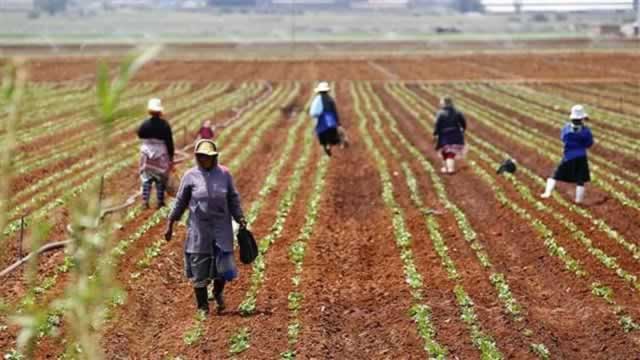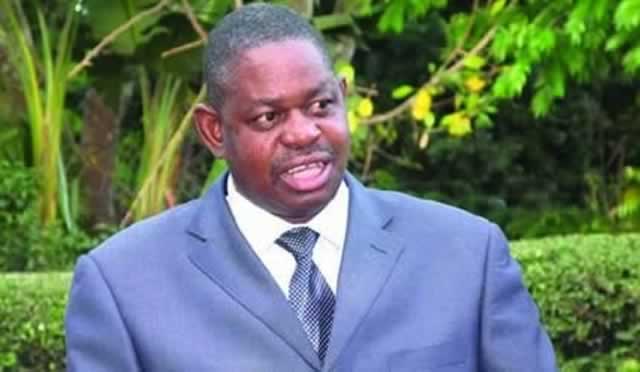Think not of the next election, but next generation

 Sydney Kawadza Snr Features Writer
Sydney Kawadza Snr Features Writer
Protests that have rocked Zimbabwe of late have been topical across the continent and beyond. They have triggered a lot of memories in the minds of those advocating an alternative route to solving Zimbabwe’s challenges.
When one reads Norman Moyo’s “Rumble in the Jungle”, a book the pan-African telecommunications executive wrote, it is clear that the author could have had some foresight on the challenges that face many African nations.
“Rumble in the Jungle” touches on a variety of topics but it is the section, “Leadership from a Pan-Africanist Perception”, which is of significance especially in the trying times we are going through.
Having had a conversation with Moyo in the course of my duties, it is difficult to pin him down and understand his mind. Unpacking his vision is a subject for another day. The argument, however, remains the objective of the street protests which have of late turned violent.
Have all avenues of engagement been exhausted to the extent that hooligans have to toyi-toyi everyday and almost destroy the hopes of people withstanding the challenges Zimbabwe is facing? Has the business community – always suspected to harbour criminal elements behind the demonstrations – failed in their bid to engage Government with ideas that could rescue Zimbabwe from its challenges?
The focus on the next election instead of the next generation is clearly a threat to the country’s children who could inherit a country devastated by fights for short-term political gains. Calls for a “strategic conversation to happen and everyone concerned to try look at the greater good of the nation beyond individual interests” ring well at the moment.
Zimbabwe has become so obsessed with the next election and in the process forgotten about the next generation. Will the next general election in Zimbabwe, one might ask, even if it generates a new political party or new leadership, move Zimbabwe forward? Is it not prudent to engage in some serious introspection?
For example, in 1965, Singapore’s first Prime Minister, Lee Kuan Yew, was faced with a dire situation like the one Zimbabwe is in today. He is said to have adopted a “business unusual” approach for the sake of the next generation not for the sake of the next election.
Lee Kuan Yew, in one generation, transformed Singapore from a Third World to a First World country. His magic, to expound the argument further, Lee Kuan Yew realised, good or bad, that to run this sophisticated machinery called government, he needed a bunch of highly skilled, experienced, thoroughbred technocrats.
So when Africa focuses on the next generation, not the next election, as a people, we become intolerant of mediocrity. This is the time to properly engage all sectors of the economy and do away with the idea of playing a blame game with the people in leadership. Moyo believes that every African country has 12 highly capable technocrats who can take any country out of its quagmire within the next 10 years.
These technocrats, he argues, are actually out there running billion dollar companies like Coca-Cola, Old Mutual and Standard Bank, etc, and top universities across the word. A team of solid technocrats will build business confidence, investor confidence, and societal confidence (and) before you know it country debts will be written off, investment starts pouring in, jobs are created, schools and roads built and hospitals modernised.
Zimbabwe, like the rest of the continent, is “preserved”, one could argue, rich with resources and intellectual capital. Our beloved Zimbabwe possesses some of the hardworking men and women in the world. The flight of intellectuals from the country could be a thing of the past if people realised that there is a window of opportunity to make a change in the country.
China, after the Cultural Revolution of Mao Zedong, realised that the only way to improve its economy was to send and teach its technocrats the ways of the world and use the same knowledge to develop itself. Deng Xiaoping, the revolutionary and statesman who led China 1978 to 1989, sent 10 000 youths to learn and return to China to develop it.
Zimbabwe’s circumstances could have been different and 16 years later we should be seeing the people who are out there making positive contributions to the development of the country. Celebrating the demise of the people who are affected by these violent demonstrations will not help at all.
We should all be worried about the time people spend in running battles with the police. The time is nigh that Zimbabweans retain the spirit of unity and make a positive contribution to the development of the country.
The graduates from Zimbabwe’s universities should not be playing soccer on the streets of Harare but engaging Government with their ideas to help in building the economy.
Instead of trying to get a job in an air-conditioned office, agriculturalists should be pestering Government for land to put their skills to ensuring food security in Zimbabwe.
The solution will never be the Arab Spring-style uprising that, for their intended purposes, caused instability that continues to dog, for example, Egypt, which has seen two governments collapsing since they started.
Libya is in turmoil because people did not prioritise their options.
The time has come for Zimbabwe to prioritise economic dynamics of the day instead of engaging in running battles for political change.
It’s now time to reflect on the legacy we want to leave the next generation. Zimbabweans should start working on the Zim-Asset policy document, indigenisation and agricultural production.
Feedback: [email protected]









Comments